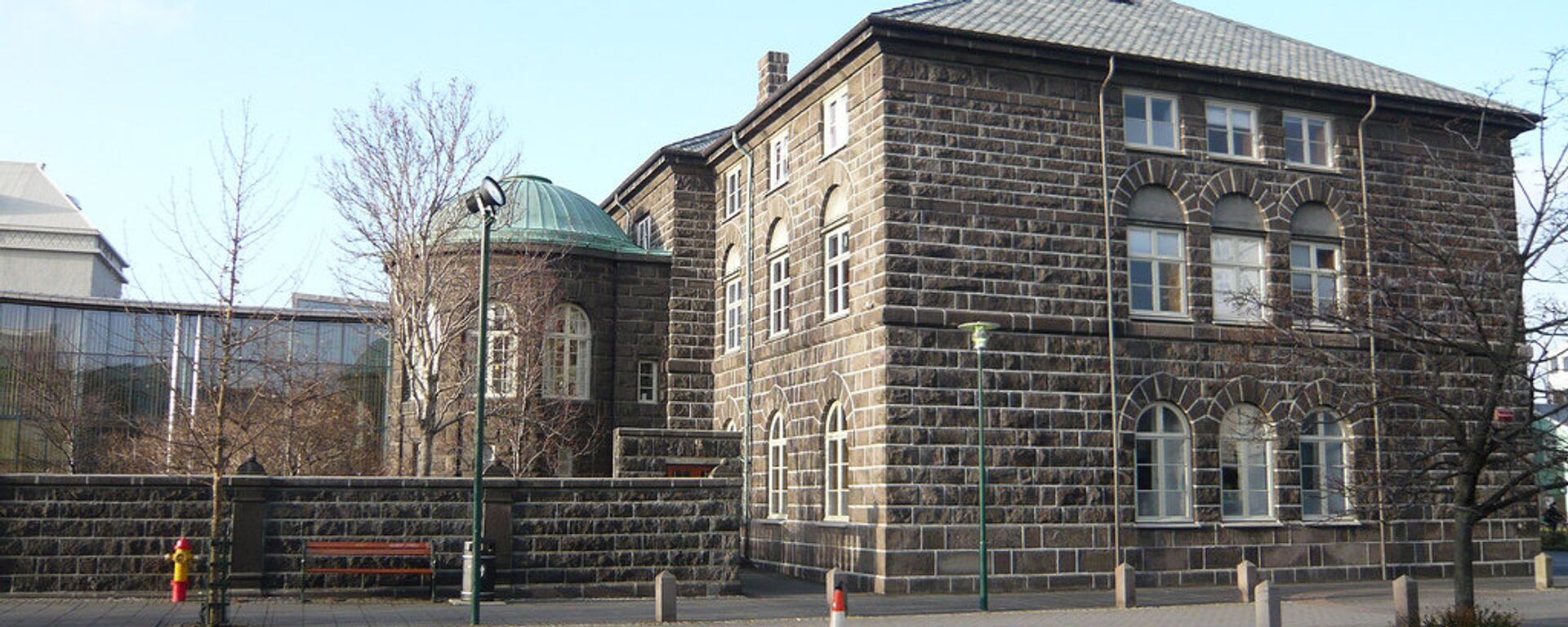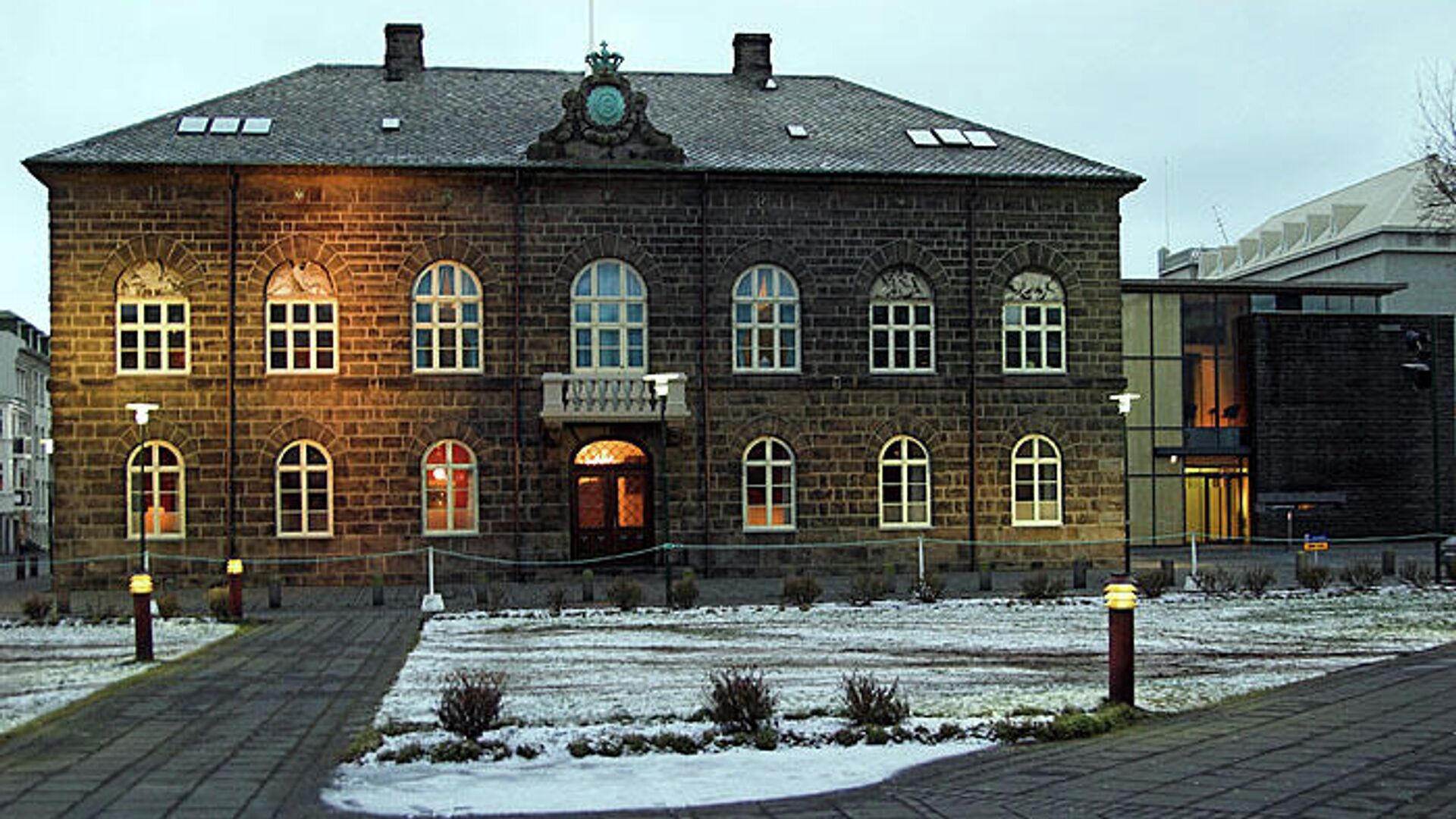https://sputnikglobe.com/20210928/patriarchy-strikes-back-icelands-historic-female-majority-parliament-up-in-smoke-after-recount-1089469600.html
Patriarchy Strikes Back? Iceland's Historic Female-Majority Parliament Up in Smoke After Recount
Patriarchy Strikes Back? Iceland's Historic Female-Majority Parliament Up in Smoke After Recount
Sputnik International
Iceland is known for electing the world's first female president in 1980 and has been ranked the most gender-equal nation by the World Economic Forum for... 28.09.2021, Sputnik International
2021-09-28T05:23+0000
2021-09-28T05:23+0000
2021-09-28T07:39+0000
iceland
newsfeed
europe
election
women
https://cdn1.img.sputnikglobe.com/img/07e5/09/1c/1089473685_0:5:701:399_1920x0_80_0_0_9f099f859f83845d0473f1db5977f4ff.jpg
Iceland's recent parliamentary election had been hailed as historic, as preliminary results indicated it to be Europe's first with women getting a majority. However, the island nation of fewer than 400,000 people has suffered an unexpected turn of events.Early vote counts showed that 33 of the 63 seats in the Althing, the Icelandic parliament, were won by women, which was hailed as a milestone.However, it appeared that the president and the press, both domestic and international, had rejoiced too soon. Following a recount in the western part of the country, the result was altered, handing the parliamentary majority back to men. After a recount, women had to settle for “only” 30 of the 63 seats, up by six seats from the last vote.Nevertheless, with women forming nearly 48 percent of the MPs, Iceland still has the largest percentage of women in parliament in Europe, edging out Sweden and Finland with 47 and 46 percent, respectively.Lenya Run Karim of the opposition Pirate Party was one of those who lost her seat after the recount. By her own admission, the 21-year-old law student and the daughter of Kurdish immigrants enjoyed “some good nine hours”, waking up to congratulatory phone calls and messages. Subsequently, though, her records as the youngest MP in Iceland's history and the first Kurd in the country's parliament were taken away.Internationally, Rwanda is at the forefront with 61.3 percent, trailed by Cuba with 53.4 percent and Nicaragua with 50.6 percent, whereas Mexico and the United Arab Emirates both have an equal numbers of men and women in their parliaments. For the sake of comparison, Denmark, a fellow Nordic nation, of which Iceland was part until 1944, has 39.1 percent women in its parliament. In the US Congress, the figure is merely 27.6 percent.In 1980, Iceland became the first country in the world to elect a female president, and in March 2021, the country was ranked the most gender equal nation in the world for the 12th year in a row by the World Economic Forum. Unlike several other countries, though, Iceland doesn't have any legal quotas for female representation in parliament. Some parties, however, require a minimum number of candidates to be women.In the updated results, Iceland's current coalition government, consisting of the Independence Party, the Progress Party and the Left-Green Movement led by Prime Minister Katrín Jakobsdóttir increased its majority to 37 seats. However, the island nation may be in for another surprise in the form of a new prime minister, as Jakobsdóttir's party lost seats.
https://sputnikglobe.com/20210926/women-to-dominate-icelands-parliament-for-first-time-ever-reports-suggest-1089422654.html
iceland
Sputnik International
feedback@sputniknews.com
+74956456601
MIA „Rosiya Segodnya“
2021
News
en_EN
Sputnik International
feedback@sputniknews.com
+74956456601
MIA „Rosiya Segodnya“
Sputnik International
feedback@sputniknews.com
+74956456601
MIA „Rosiya Segodnya“
iceland, newsfeed, europe, election, women
iceland, newsfeed, europe, election, women
Patriarchy Strikes Back? Iceland's Historic Female-Majority Parliament Up in Smoke After Recount
05:23 GMT 28.09.2021 (Updated: 07:39 GMT 28.09.2021) Iceland is known for electing the world's first female president in 1980 and has been ranked the most gender-equal nation by the World Economic Forum for twelve consecutive years. Nevertheless, a recount in the recent election dashed its hopes of becoming Europe's first nation to have female MPs forming a majority.
Iceland's recent parliamentary election had been hailed as historic, as preliminary results indicated it to be Europe's first with women getting a majority. However, the island nation of fewer than 400,000 people has suffered an unexpected turn of events.
Early vote counts showed that 33 of the 63 seats in the Althing, the Icelandic parliament, were won by women, which was hailed as a milestone.
“In historical and international light, the most significant news is that women are now, for the first time ever, the majority in the Icelandic parliament. This is the first time in Europe. And this is good news”, President Gudni Johannesson was quoted as saying by Danish TV2.
However, it appeared that the president and the press, both domestic and international, had rejoiced too soon. Following a recount in the western part of the country, the result was altered, handing the parliamentary majority back to men. After a recount, women had to settle for “only” 30 of the 63 seats, up by six seats from the last vote.

26 September 2021, 13:11 GMT
Nevertheless, with women forming nearly 48 percent of the MPs, Iceland still has the largest percentage of women in parliament in Europe, edging out Sweden and Finland with 47 and 46 percent, respectively.
Lenya Run Karim of the opposition Pirate Party was one of those who lost her seat after the recount. By her own admission, the 21-year-old law student and the daughter of Kurdish immigrants enjoyed “some good nine hours”, waking up to congratulatory phone calls and messages. Subsequently, though, her records as the youngest MP in Iceland's history and the first Kurd in the country's parliament were taken away.
Internationally, Rwanda is at the forefront with 61.3 percent, trailed by Cuba with 53.4 percent and Nicaragua with 50.6 percent, whereas Mexico and the United Arab Emirates both have an equal numbers of men and women in their parliaments. For the sake of comparison, Denmark, a fellow Nordic nation, of which Iceland was part until 1944, has 39.1 percent women in its parliament. In the US Congress, the figure is merely 27.6 percent.
In 1980, Iceland became the first country in the world to elect a female president, and in March 2021, the country was ranked the most gender equal nation in the world for the 12th year in a row by the World Economic Forum. Unlike several other countries, though, Iceland doesn't have any legal quotas for female representation in parliament. Some parties, however, require a minimum number of candidates to be women.
In the updated results, Iceland's current coalition government, consisting of the Independence Party, the Progress Party and the Left-Green Movement led by Prime Minister Katrín Jakobsdóttir increased its majority to 37 seats. However, the island nation may be in for another surprise in the form of a new prime minister, as Jakobsdóttir's party lost seats.




